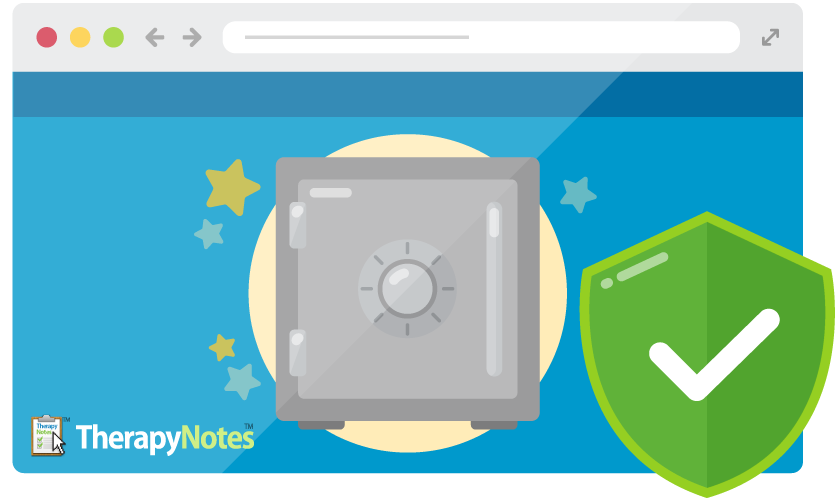Should You Have Separate Business Bank Accounts?
By Sarita Gulati on January 19, 2022

As a therapist starting or running your own practice, you may have wondered whether it’s acceptable to run your business from the comfort of your personal bank account. There are so many different facets to starting your own business and keeping it running smoothly, and it can be hard to tell what the right financial move is when it comes to your banking.
Business bank accounts can be extremely beneficial because they allow you to protect and manage any money earned or spent directly from your therapy practice. You can use that bank account (or multiple, if you opt for a checking and savings) to write or deposit checks, make money transfers, or use a credit or debit card specifically for your business. You’ll have a better picture of your business finances and be able to budget and make financial decisions more easily and accurately.
It often seems more convenient to track your cash flow and spending in one place alongside your personal finances—after all, especially if you’re the sole owner of your business, it’s all your money. However, there are so many different benefits that come from separating your business expenses from your personal ones. By having a business account, you are able to ensure your finances stay organized and audit-proof through your own banking. Especially once tax season hits, you’ll want to ensure that everything is all in one place.
Banking for Sole Proprietors vs. LLCs and S Corporations
Did you know that for some practices, it’s actually required that you track your finances separately from personal expenses? It depends on what kind of business entity your practice is registered as. Mental health providers operating as sole proprietors are not typically required to take this additional step, but any other business entity, such as an LLC or an S corporation, must keep their business bank accounts separate. It's encouraged that all clinicians set up business accounts in order to ensure the financial success of their practices—yes, even if you’re a sole proprietor!
If this is your first time hearing that you should keep your business banking separate, never fear! This is a key financial lesson for many therapists, and new insights will only help you to keep improving your practice. The best news is, even if you have a history of mingling your personal and business expenses, you can start organizing your finances immediately by opening a business bank account. Do some research around which banks will work best for you, keeping in mind those pesky maintenance and account fees!
Don’t think of having an additional bank account as a hassle in itself; in reality, the move requires minimal effort and can lead to long-term financial gains. It’s easier to see how financially healthy your practice is month over month, and it will inevitably make the tax process a whole lot easier.
The three primary benefits of having a separate checking and savings account for your practice include:
1. Tracking Your Practice’s Cash Flow
Okay, we hear you. This may seem obvious, but the ability to clearly see and track the cash that flows in and out of your practice is incredibly advantageous. For those who don’t take the time to separate their bank accounts, it can be easy to miss! You won’t have to spend any time wondering which of your food expenses were from a client lunch, or scroll through pages of bank statements to figure out how much income you made each month of the year. You’ll easily get a better gauge on how much your practice is actually earning for you!
2. Protecting Your Business From Being Audited
No therapist ever wants to think about being audited. Of course not—you’re human! However, it can happen, and none of us are immune to the possibility. If the IRS ever does come knocking at your door, having your financials kept completely separate from your personal banking ensures that your books are organized and clear. You can head to a bank statement and know for certain that everything on it was purchased for your business. In other words, you have a very clean paper trail of your expenses and income.
3. Maximizing Your Tax Deductions as a Therapist
Did you know that some of the fees and costs you rack up while running your practice can actually reduce the amount of money you owe towards taxes? These are tax deductions and they are perhaps the best pay-off when it comes to keeping your bank accounts separate. When you keep track of your expenses accurately and separately, you have a clear picture of what money was spent on which kinds of items, which can therefore directly inform your tax deductions. You can receive deductions on a variety of popular business expenses, including office rent, advertising and marketing, professional fees and more.
Any deductible expenses will then reduce the amount of taxes you’ll need to pay on your income. Need we say more?
All In On Business Banking
While the above are three primary reasons to keep your bank accounts separate and improve your practice’s financial health, there are smaller advantages to note as well! For example, you can get your own business checks for your therapy practice—which are great to have, seeing as you’re a legitimate business. You can also qualify for special deals on loans or credit cards for your business or therapy practice. With the right financial habits in place, you’ll be better prepared to grow your practice and handle whatever comes your way.
* The content of this post is intended to serve as general advice and information. It is not to be taken as legal advice and may not account for all rules and regulations in every jurisdiction. For legal advice, please contact an attorney.

About Sarita Gulati
Get more content like this, delivered right to your inbox. Subscribe to our newsletter.
More Content You'll Enjoy

Converting Clients

Building a Leadership Team
